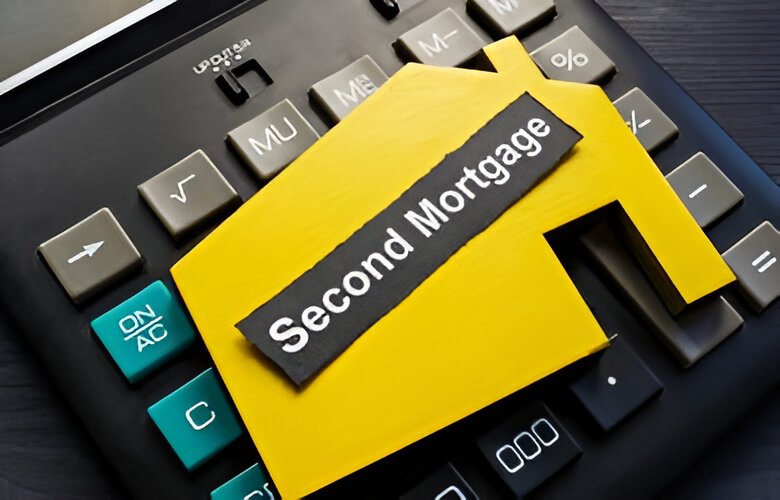When it comes to obtaining a commercial mortgage in Ontario, there are several requirements to consider, one of which is a substantial deposit. While the exact deposit requirements may vary based on various factors, most lenders adhere to a similar range. In this blog, we will provide insights into the workings of commercial mortgages and shed light on the typical deposit amounts that Canadians encounter. Furthermore, we will explore strategies that may help you reduce the deposit required for your commercial mortgage.
What is a Commercial Mortgage?
A commercial mortgage is a type of mortgage that is secured by commercial real estate, using the property itself as collateral. Unlike residential mortgage, commercial mortgages are typically sought by corporations, with the buyers of commercial properties being primarily corporations, partnerships, or limited companies.
Differences Compared to Residential Mortgages:
Commercial mortgages differ from residential mortgages in several key ways, most notably in terms of risk level. From the perspective of lenders, commercial mortgages are considered riskier compared to residential mortgages. The assessment process for commercial loans is also more intricate and complex.
The increased risk associated with commercial mortgages stems from the following factors:
Corporate Responsibility: Commercial mortgages involve the responsibility of a corporation, whereas residential mortgages are based on the responsibility of individuals or families.
Creditworthiness Assessment: Assessing the creditworthiness and evaluating potential risk for commercial mortgages can be more challenging due to the diverse factors involved.
Different Income History Assessments: Commercial mortgages require a different approach to evaluating income history, as they rely on complex business performance rather than fixed employee incomes.
Repayment Based on Business Performance: The repayment of a commercial mortgage depends on the intricate workings of a business, as opposed to relying on the stable income of individual employees.
These inherent risks and complexities have significant implications for borrowers seeking commercial mortgages. The most notable impact is that lenders, in order to compensate for the higher risk, charge considerably higher interest rates. Additionally, commercial mortgages typically require a substantial deposit.
What are the Typical Commercial Mortgage Deposit Requirements?
In Ontario, commercial mortgage deposit requirements, also known as down payments, generally range from 10% for owner-occupied properties to 50% for non-owner-occupied properties. For non-owner-occupied properties, the percentage of the down payment is directly correlated to the actual rent or market rent that the property can generate. This, in turn, determines the loan amount that banks are willing to provide based on the debt service coverage ratio.
Understanding the deposit requirements for commercial mortgages is essential as it affects the overall financing structure of your commercial property investment. By familiarizing yourself with the norms and guidelines surrounding deposit requirements, you can better prepare and plan for your commercial mortgage application process.
Loan-to-Value Ratio:
The loan-to-value (LTV) ratio compares the mortgage amount to the lender-assessed value of the property. Lenders generally consider high LTV ratios exceeding 75% as risky, particularly for properties that are less than 50% owner-occupied. Each lender sets an LTV threshold, exceeding which they may decline your loan application.
Business Credit:
Your business credit history plays a significant role in determining deposit requirements. Obtaining a business credit report from major credit bureaus provides lenders with a comprehensive overview of your business’s creditworthiness. Canadian business credit reports include essential details such as the duration of your business’s existence and predictive risk scores, indicating the health of your business in the upcoming year. Moreover, lenders consider your credit payment history, existing lines of credit, and outstanding debt.
Current Financials:
For owner-occupied properties, lenders assess your business’s current income in relation to the mortgage size you’re seeking. Your income is also evaluated against your business debt. Well-established businesses with stable income tend to receive more favorable consideration. To support your commercial mortgage application, you will likely need to provide income statements and projections. Some lenders may have additional requirements such as a minimum annual income and a preference for liquid funds rather than equity.
For non-owner-occupied properties, lenders scrutinize the financials of the company owning the property to determine the gross and net rents generated.
Debt-Service Coverage Ratio:
The debt-service coverage ratio (DSCR) is a crucial metric used to assess a property’s ability to repay a loan based on its net income. Each lender has specific criteria based on factors such as the property’s location, use, and occupancy. The DSCR helps determine the maximum amount you can borrow for your commercial mortgage.
Business Type:
Commercial mortgage lenders evaluate different business types with varying levels of risk. Similarly, the type of property you intend to purchase is considered. Certain traditional lenders may refrain from providing commercial mortgages for specific property uses. Freedom Capital, as a private mortgage lender, offers more flexibility in considering a wide range of business types and property uses.
Improving Your Chances:
After evaluating these factors, lenders will inform you of the deposit requirement for your commercial loan. However, there are strategies you can employ to potentially qualify for a smaller down payment. Increasing your business’s income and improving your debt ratios can enhance your chances of securing more favorable deposit requirements. Shopping around and negotiating with different lenders can also lead to better deals and lower deposit requirements.
At Freedom Capital, we understand the importance of finding the right commercial mortgage for your needs. Our dedicated team can guide you through the application process and help you explore deposit requirements that align with your business goals. Contact us today for a no-obligation mortgage quote and consultation.
How to Obtain a Commercial Mortgage in Ontario:
Begin your search for commercial mortgages today by comparing rates and lenders. By carefully assessing different options, you can find the most favorable terms and deposit requirements suitable for your business. Freedom Capital specializes in assisting clients in securing commercial mortgages ranging from $500,000 to over $300 million. Reach out to us today to learn more about the terms and deposit requirements that your business may qualify for.








